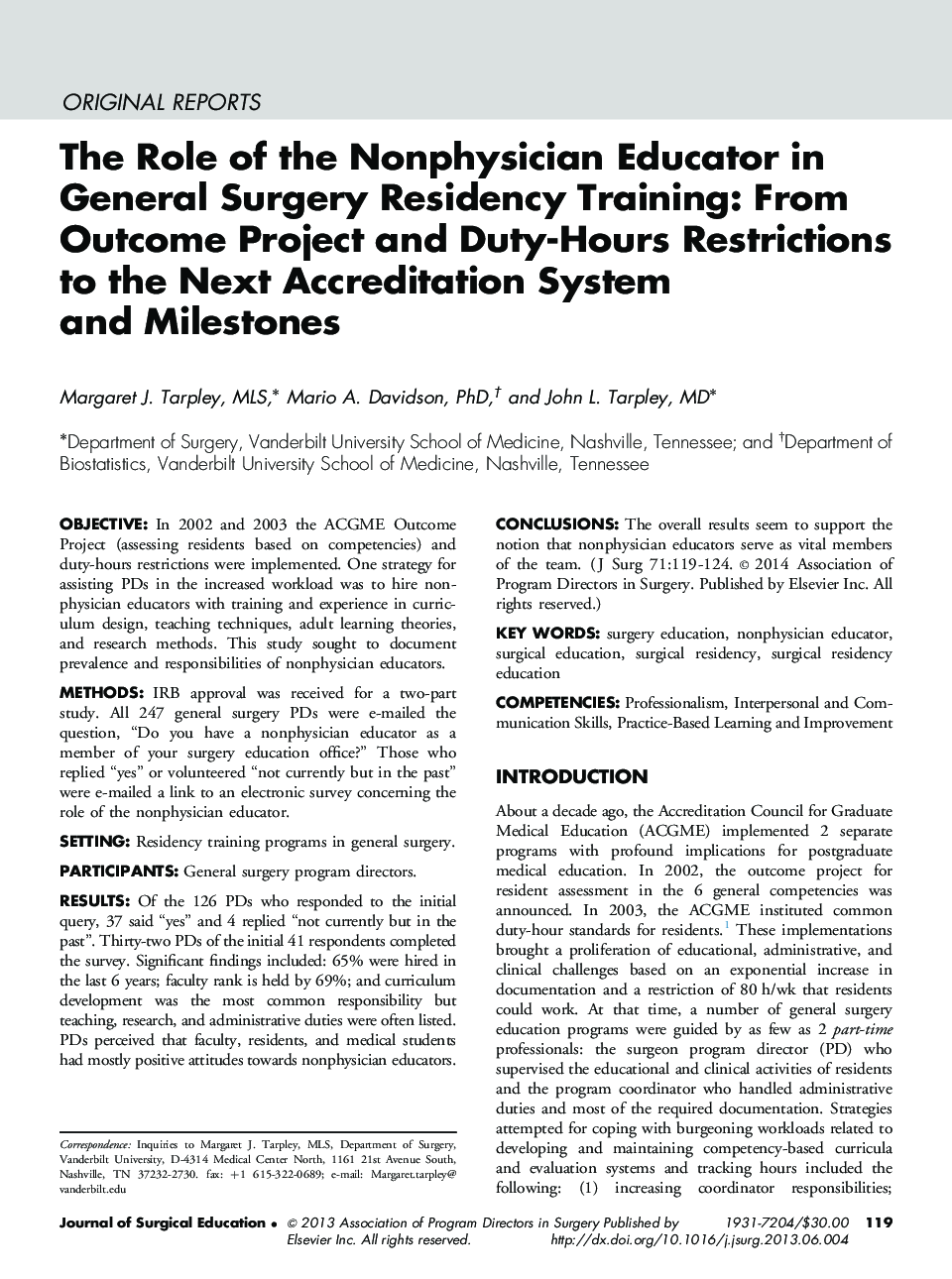| Article ID | Journal | Published Year | Pages | File Type |
|---|---|---|---|---|
| 4297644 | Journal of Surgical Education | 2014 | 6 Pages |
ObjectiveIn 2002 and 2003 the ACGME Outcome Project (assessing residents based on competencies) and duty-hours restrictions were implemented. One strategy for assisting PDs in the increased workload was to hire nonphysician educators with training and experience in curriculum design, teaching techniques, adult learning theories, and research methods. This study sought to document prevalence and responsibilities of nonphysician educators.MethodsIRB approval was received for a two-part study. All 247 general surgery PDs were e-mailed the question, “Do you have a nonphysician educator as a member of your surgery education office?” Those who replied “yes” or volunteered “not currently but in the past” were e-mailed a link to an electronic survey concerning the role of the nonphysician educator.SettingResidency training programs in general surgery.ParticipantsGeneral surgery program directors.ResultsOf the 126 PDs who responded to the initial query, 37 said “yes” and 4 replied “not currently but in the past”. Thirty-two PDs of the initial 41 respondents completed the survey. Significant findings included: 65% were hired in the last 6 years; faculty rank is held by 69%; and curriculum development was the most common responsibility but teaching, research, and administrative duties were often listed. PDs perceived that faculty, residents, and medical students had mostly positive attitudes towards nonphysician educators.ConclusionsThe overall results seem to support the notion that nonphysician educators serve as vital members of the team.
